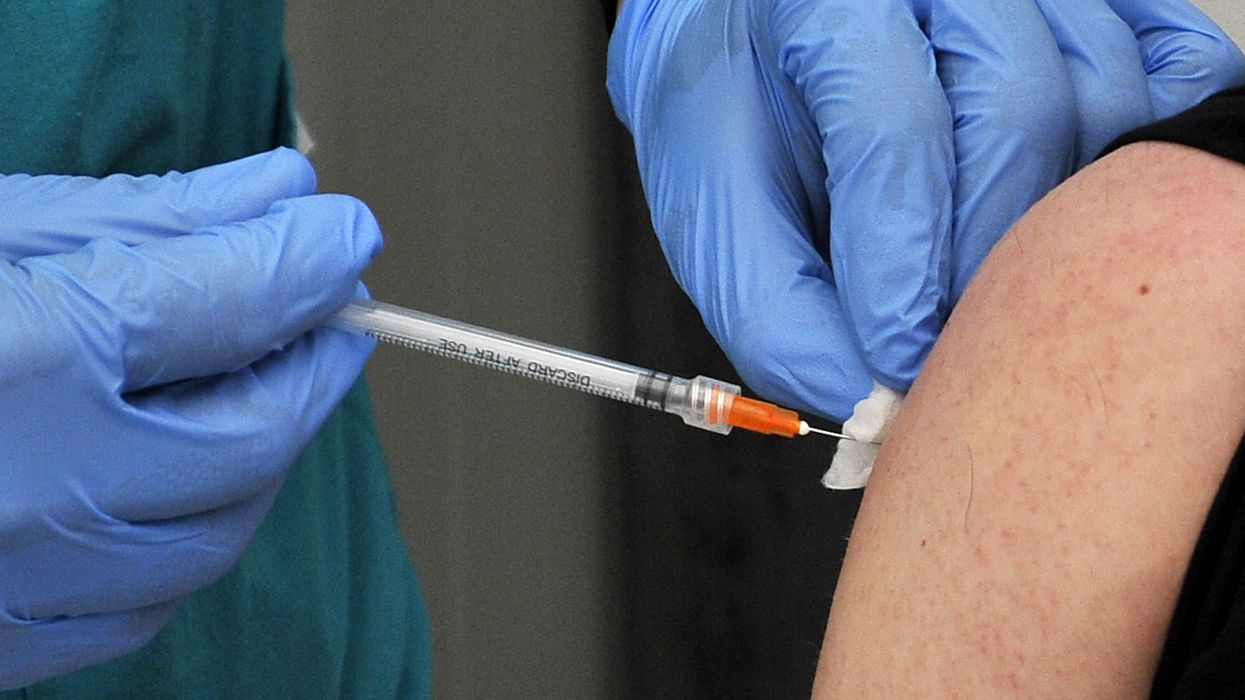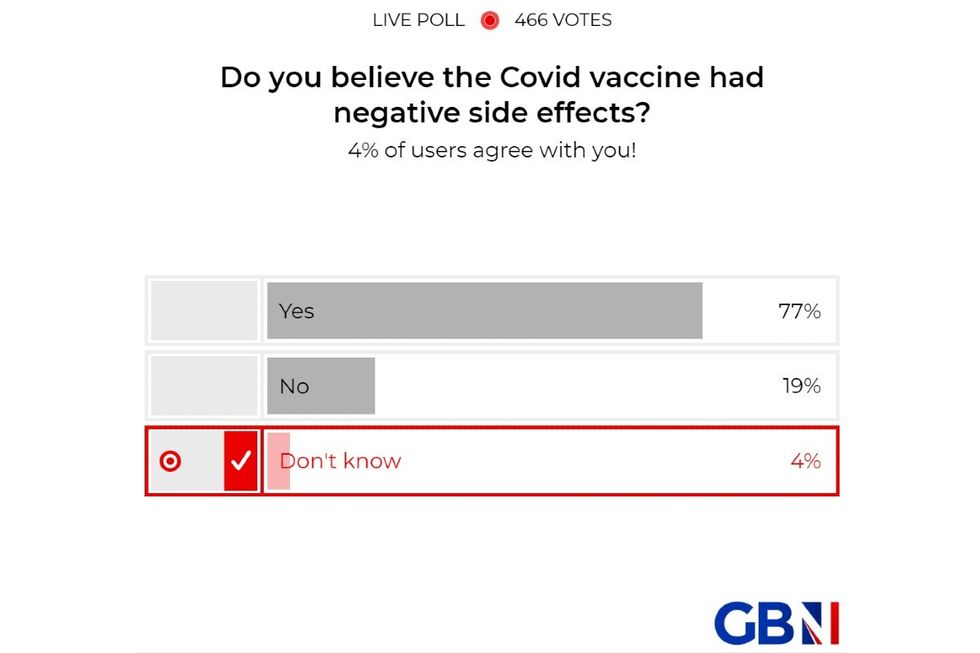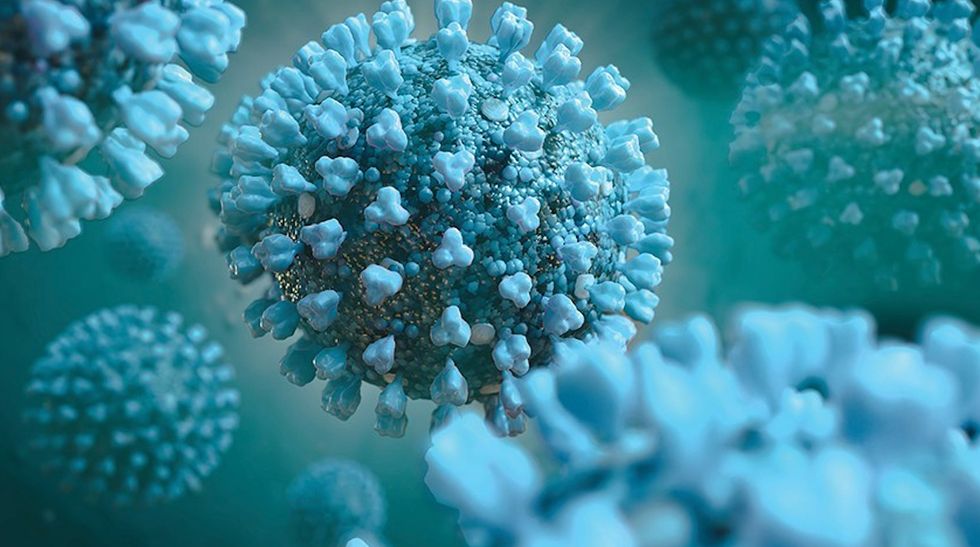POLL OF THE DAY: Do you believe the Covid vaccine had negative side effects? YOUR VERDICT

AstraZeneca's Covid vaccine causes rare side effect, AstraZeneca admits in astonishing U-turn | Getty Images

AstraZeneca is no longer being offered in the UK
Don't Miss
Most Read
Latest
AstraZeneca has admitted for the first time that its Covid vaccine can cause a very rare side effect in an astonishing U-turn for the company.
The pharmaceutical giant admitted that its Covishield jab, which was administered in 150 countries, can cause extremely rare side effects such as blood clots and low platelet count.
Although the vaccine has been shown to confer substantial protection against Covid-19 in some studies, further research has also found an increased risk of a very rare blood clotting condition called TTS, or Thrombosis with Thrombocytopenia Syndrome, following vaccination.
AstraZeneca is no longer being offered in the UK, although the Medicines and Healthcare products Regulatory Agency (MHRA) still monitors potential side effects from this vaccine.
Despite the company’s admittance, studies stress overwhelmingly that the risk of an adverse event post-vaccination is extremely low.

POLL OF THE DAY: Do you believe the Covid vaccine had negative side effects? YOUR VERDICT
|GB News
A 2023 study by the University of Oxford analysed the health records of 29.1 million people in England and estimated that for every 10 million people who are vaccinated with AstraZeneca, there are 66 extra cases of blood clots in the veins and seven extra cases of a rare type of blood clot in the brain.
Infection with COVID-19, in contrast, is estimated to cause 12,614 extra cases of blood clots in the veins and 20 cases of rare blood clots in the brain.
The benefits of getting vaccinated therefore outweigh the risks posed by Covid.
AstraZeneca made the seeming U-turn in court documents amid a class action lawsuit filed in the UK over claims that its Covishield vaccine led to deaths and severe injuries. Victims are seeking damages estimated to be worth up to £100million.

Covid virus
|GB News
One of the complainants alleged that the vaccine caused him a permanent brain injury after he developed a blood clot, preventing him from working.
While AstraZeneca has contested these claims, it admitted for the first time in one of the court documents that the vaccine can “in very rare cases, cause TTS”, or Thrombosis with Thrombocytopenia Syndrome, which is characterised by blood clots and a low blood platelet count in humans.
“It is admitted that the AZ vaccine can, in very rare cases, cause TTS. The causal mechanism is not known,” the company said in the court documents in February, The Telegraph reported.
It added: “Further, TTS can also occur in the absence of the AZ vaccine (or any vaccine). Causation in any individual case will be a matter for expert evidence.”
AstraZeneca maintains that patient safety remains its top priority and emphasises that regulatory authorities have stringent standards to ensure the safety of vaccines.
Giving his take on the latest information, GB News’ Digital Health Editor Adam Chapman highlighted that “the admission is a significant development for victims seeking justice for complications they have developed following Covid vaccination.
“However, a sober assessment of the risk-to-benefit ratio of getting vaccinated must be highlighted here. Context also matters.
“The Covid pandemic was a global emergency that required a swift response. Scientists worked with the data they had at the time to constantly learn and adapt to what was a fast-moving target.
“Independent studies show the AstraZeneca vaccine was incredibly effective in tackling the pandemic, saving more than six million lives globally in the first year of the rollout.”
In an exclusive poll for GB News membership readers, an overwhelming majority (77 per cent) of the 466 voters thought the Covid vaccine did have negative side effects, while just 19 per cent thought it didn't. Four per cent said they did not know.










